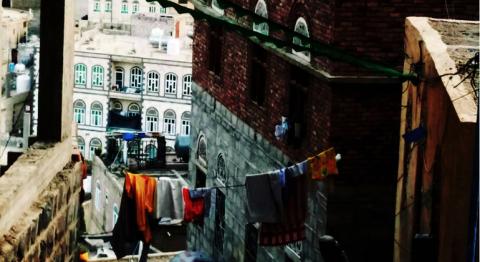Yemen Dynamic Needs Assessment: Phase 3 - 2020 Update


In June 2014, armed conflict between the government and armed groups began to spread across much of the Republic of Yemen.
The conflict, which escalated in March 2015, has caused major loss of life, internal displacement, and damage to infrastructure and service delivery throughout the economy and society. To understand the effect of the evolving conflict on the Yemeni people and estimate preliminary recovery and reconstruction needs, the World Bank Group (WBG), in close cooperation with the Government of Yemen (GoY), initiated the multi-phased Yemen Dynamic Needs Assessment (DNA) in September 2015.
This assessment is the third phase in the series of DNAs that the WBG has conducted since 2015. It was conducted in 2018, and updated in 2020. The key objective of the third phase of the Yemen DNA is to provide the WBG, the GoY, and the international community with an update on the impact of the crisis on the population, physical assets, infrastructure, service delivery, and institutions of the Republic of Yemen. It also provides a preliminary estimate of the need for reconstruction of physical infrastructure and restoration of service delivery that may be useful in planning recovery. Temporal scope: Damage and needs were calculated according to a March 2015 baseline situation, compared to data and information collected as of January 2020. Sectoral scope: The assessment is conducted for the following 12 sectors: education, food security, governance, health, housing, information and communications technology (ICT), power, social protection, social resilience, solid waste management, transport, and water and sanitation (WASH). Geographic scope: The third phase of the Yemen DNA is primarily a city-level assessment for the following 16 cities: Ad-Dhale, Aden, Al Hazm, Amran, Bayhan, Dhamar, Hodeidah, Khoka, Lahj, Lodar, Ma’rib City, Mocha, Rada’a, Sa’da, Sana’a, and Taiz. Whenever sufficient and accurate information was available, the assessment was extended to cover the governorates in which the target cities are located. Certain sectors were assessed at the governorate level or at the national level.

Paris — The French humanitarian organization Acted announced that it has delivered cash assistance to nearly 89,000 people affected by displa…

Sana’a — Fuel and food imports into ports under the control of Yemen’s Houthi movement on the Red Sea have continued to fall for…

ADEN — Yemen Airways, the country’s national carrier, announced it will resume flights between Aden and Abu Dhabi beginning in January…